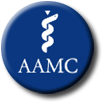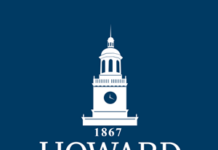 There was a time when African Americans were totally excluded from U.S. medical schools. Then, due to a need for doctors to serve Black patients, since many White physicians preferred not to do so, segregated medical schools for African Americans were established.
There was a time when African Americans were totally excluded from U.S. medical schools. Then, due to a need for doctors to serve Black patients, since many White physicians preferred not to do so, segregated medical schools for African Americans were established.
Prior to the civil rights era, only token numbers of Black students were admitted to predominantly White medical schools. Beginning in the early 1970s, Blacks began to make inroads. In 2011, according to the Association of American Medical Colleges, there were 5,581 African American students in U.S. medical schools. They made up just under 7 percent of the total enrollments.
In 2011, 16 percent of all African American medical school students were enrolled in the three historically Black medical schools: Meharry, Howard, and Morehouse.
In 2002, Blacks were 6.9 percent of all U.S. medical school graduates. This percentage increased to 7.1 in 2006. But since that time the Black percentage of all U.S. medical school graduates has decreased. In 2011, there were 1,129 Black graduates of U.S. medical schools. They made up 6.5 percent of all medical school graduates that year.











This a shame. We have to change this number or health care for Blacks in the US will continue to be weak. We have to start early in the education of the students.
I agree, we definitely need to have partnerships and collaborations with our elementary and secondary schools to create and sustain an interest in the sciences. Studies have shown that minority doctors are more likely to work in minority and underserved communities, and so we as educators need to take a more proactive approach to help supply the medical sciences pipeline.
I am a junior biology major, I attend an HBCU Oakwood University in Huntsville, AL), I will be applying to medical school this summer and I need so much help!!
I don’t even know where to start,
-I need to get ready for the MCAT (prep course $2,000 minimum)
-I need to find a scholarship for med school or a co-signer
Can Someone help me???
I know of a young black women who was accepted into 9 med schools! This is amazing because over 2/3 of med school applicants are DENIED.. and she got into 9!
They are DESPERATE for blacks.. and we should be really encouraging our children to attain this goal! From elementary school… it cannot start in high school.
I come across so many black teens that say they want to be doctors, but they have NO idea of the road they need to be on the get to that point and its sad!
Please visit Mentoring in Medicine… a mentoring program begun by Dr. Lynn Holden.
The road from high school to med school is a long and bumpy one. Our children need all of the informed support that they can get. If we can provide educated and informed premed advisors early on to our children, they will have a better shot. Are there resources and/or websites devoted to this sort of support?
there are other roads to a successful, fulfilled life. i-bankers, MDs and lawyers aren’t the only roads to success.